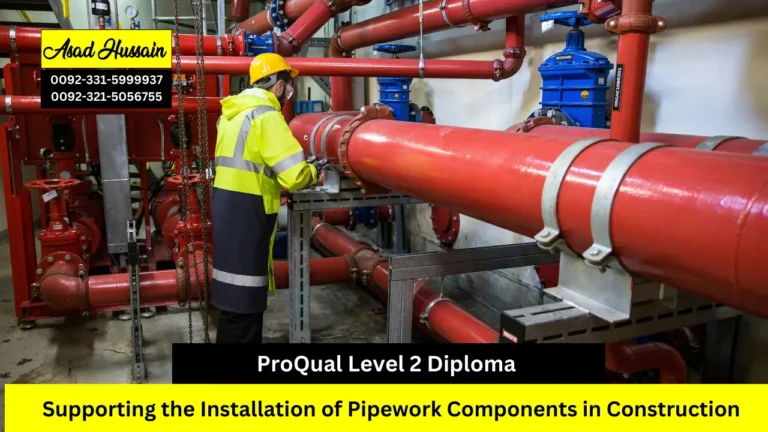In the realm of civil engineering and construction, gaining a solid educational foundation is crucial for aspiring professionals. The c offers a structured pathway for those interested in the technical aspects of civil engineering, providing a practical and theoretical understanding essential for a successful career in the field.
The Level 2 Diploma in Civil Technology is a qualification designed to equip learners with foundational skills and knowledge in civil engineering technology. This diploma is ideal for those looking to enter the civil engineering sector or enhance their existing skills. It focuses on key technical competencies, including construction principles, materials, and methods used in civil engineering projects.
The Level 2 Diploma in Civil Technology offers a solid foundation for those eager to enter the field of civil engineering and construction. With a focus on essential technical skills, materials science, and project management, this diploma prepares students for a range of career opportunities and further educational pursuits. By investing in this qualification, individuals are taking a significant step towards a successful and rewarding career in civil technology.
Program Highlights
Mandatory Units
- Introduction to Civil Engineering and Construction Technology
- Construction Materials and Methods
- Site Surveying and Measurement
- Structural Analysis and Design Basics
- Computer-Aided Design (CAD) Fundamentals
- Communication Skills for Civil Technology
- Workplace Skills and Ethics
- Educational Background: Typically, participants should have a high school diploma or its equivalent (such as a GED). Some programs may require a minimum level of education, such as completion of secondary education, to ensure participants have basic academic skills.
- Language Proficiency: Proficiency in the language of instruction (usually English) is essential to comprehend complex course materials, actively participate in discussions, and complete written assignments.
- Age Requirement: Participants must be at least 18 years of age to enroll in this course.
- Industry Experience: While not always required, some programs may prefer or recommend that participants have some prior industry experience related to the field they intend to study. This can provide valuable context for understanding quality control principles.
- Level 1 CT Diploma (Recommended): While not mandatory, completion of a Level 1 Civil Technology diploma or equivalent foundational training is highly recommended.
Introduction to Civil Engineering and Construction Technology
- Understand the Role of Civil Engineering: Recognize the various functions and contributions of civil engineering within the construction industry.
- Familiarize with Construction Technology: Gain insight into the technologies and innovations used in modern construction practices.
- Identify Key Concepts: Learn the fundamental concepts, terminologies, and principles that form the basis of civil engineering and construction technology.
Construction Materials and Methods
- Identify Construction Materials: Understand the types and properties of various construction materials, including concrete, steel, timber, and composites.
- Apply Material Properties: Learn how to select and apply construction materials based on their properties and suitability for different types of construction projects.
- Understand Construction Methods: Gain knowledge of various construction methods and techniques, and how they influence the building process and project outcomes.
Site Surveying and Measurement
- Perform Site Surveys: Develop the skills to conduct basic site surveys, including measuring and recording site dimensions and topographical features.
- Utilize Surveying Tools: Learn to use common surveying instruments and tools, such as theodolites, levels, and measuring tapes, accurately.
- Interpret Survey Data: Understand how to interpret and apply survey data in the context of construction planning and design.
Structural Analysis and Design Basics
- Understand Structural Components: Learn the basic principles of structural analysis, including the roles of different structural elements like beams, columns, and foundations.
- Apply Design Principles: Gain knowledge of fundamental design principles for creating safe and efficient structural systems.
- Analyze Simple Structures: Develop the ability to perform basic structural analysis for simple structures, including calculations for loads and stresses.
Computer-Aided Design (CAD) Fundamentals
- Use CAD Software: Acquire basic skills in using Computer-Aided Design (CAD) software for creating and modifying construction drawings and plans.
- Understand CAD Tools and Features: Learn about the essential tools and features of CAD software that are commonly used in civil engineering and construction design.
- Create CAD Drawings: Develop the ability to produce accurate and detailed CAD drawings, including floor plans, elevations, and sections.
Communication Skills for Civil Technology
- Enhance Communication Skills: Improve verbal and written communication skills essential for effective collaboration and presentation in civil technology contexts.
- Prepare Technical Reports: Learn how to prepare clear and concise technical reports and documentation relevant to civil engineering projects.
- Conduct Presentations: Develop the ability to present technical information and project details to different stakeholders effectively.
Workplace Skills and Ethics
- Understand Workplace Ethics: Learn about professional ethics and conduct in the civil engineering and construction industry.
- Develop Workplace Skills: Acquire essential workplace skills, including teamwork, problem-solving, and time management.
- Navigate Workplace Challenges: Gain insights into common workplace challenges and strategies for addressing them professionally and ethically.
The Level 2 Diploma in Civil Technology is tailored for individuals who are keen to embark on a career in civil engineering and construction, or for those seeking to enhance their technical expertise in these fields. This course is ideal for school leavers and young professionals who want to build a strong foundation in civil technology. It also suits current employees in construction or engineering roles who wish to formalize their knowledge and advance their career prospects. Additionally, the diploma is beneficial for those aiming to progress to higher qualifications or specialized areas within civil engineering. Whether you’re just starting out or looking to refine your skills, this course offers valuable insights and practical knowledge essential for success in the civil technology sector.







